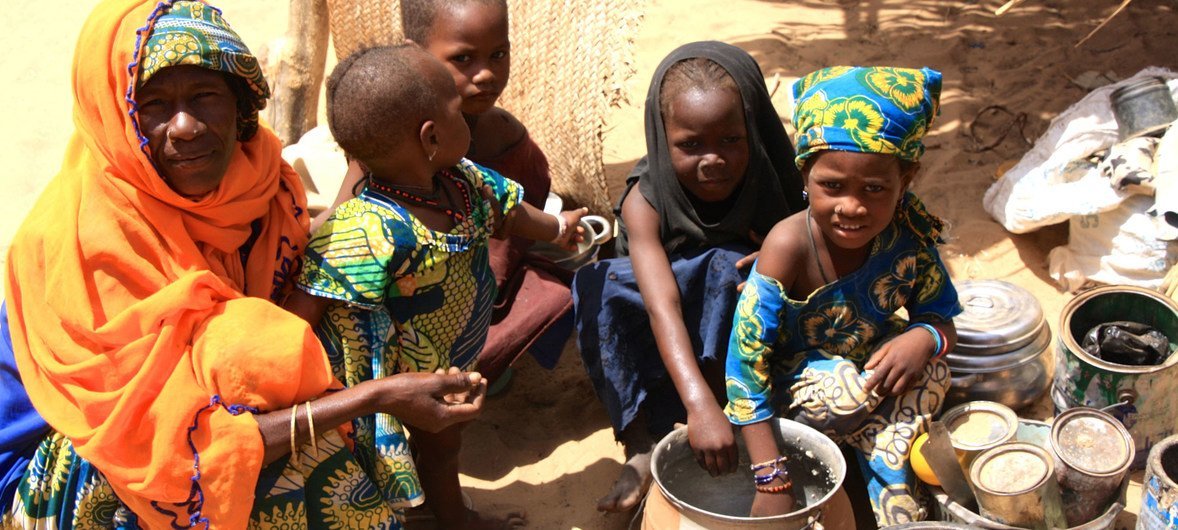The report eligible, Journey to Extremism in Africa: Paths to Recruitment and Disengagement , underscores the importance of financial factors as drivers of recruitment.
Desperation factor
Fundamental human being rights abuses such as viewing a father arrested, or a brother taken away by national military forces, were among those triggers cited. This calls for greater investment in basic services including child welfare, education and demands an investment in rehabilitation plus community-based reintegration services. Families from Nigeria who have fled attacks by Boko Haram in Nigeria, are usually shelteing in Diffa, Niger The review draws from interviews with nearly 2, 200 different people in eight countries: Burkina Faso, Cameroon, Chad, Mali, Nigher, Nigeria, Somalia, plus Sudan.
In their own words
Security-driven counter-terrorism responses will often be costly and minimally efficient, said the UNDP Manager, and investments in precautionary approaches to violent extremism are inadequate. Of that figure, some “71 per cent cited human legal rights abuses they had suffered, for example government action”, said Nirina Kiplagat, main author of the report and UNDP’s Regional Peacebuilding Advisor. Around 48 per cent of voluntary employees told researchers that there have been “a triggering event” resulting in them signing up.
Violations driving recruitment too
According to the review, peer pressure from loved ones or friends, is reported as the second more common driver for recruitment, including women who are following their spouses into an extremist team. “ The geopolitical dimension should not surprise anyone ”, said Mr. Steiner, where States are no longer capable of provide the rule of legislation or meaningful national safety, “then the opportunity for other actors to become part of this drama grows exponentially , we have seen it in Mali, we now have seen it in Libya, we have seen it at the Horn of Africa”. Sub-Saharan Africa has become the new global epicentre of violent extremism with almost half of worldwide terrorism deaths recorded there in 2021. A quarter of those who volunteered stated the main factor was joblessness – a 92 percent increase from your last UNDP study of violent extremism in 2017.

The new report is usually part of a series of three, examining the prevention of violent extremism. It highlights the urgent need to move away from security-driven responses to development-based approaches focused on prevention, said UNDP.
Development-based treatments
Religious ideology is the third most common reason for joining up, cited by around 17 percent of interviewees. This particular presents a 57 % decrease from the 2017 results. More than 1, 000 of those interviewees are former members of violent extremist groups, both non-reflex and forced recruits. OCHA/Franck Kuwonu Mister. Steiner said a “toxic mix” was being created of poverty, destitution, and insufficient opportunity, with so many citing the particular “ urgent have to find livelihoods”. It is tantamount to a culture “ no longer working with a rule of law, embracing some of these violent extremists’ groupings to provide security . ” Based on the interviews, the review also identified factors that drive recruits to keep armed groups, such as unmet financial expectations, or a lack of trust in the group’s leadership.
No surprises
Insufficient income, the lack of job possibilities and livelihoods, means that “desperation is essentially pressing people to take up opportunities, with whoever offers that ”, said Achim Steiner, UNDP Administrator, speaking at the report launch. Terrorist groups such as ISIS, Boko Haram or even Al-Qaeda emerge due to nearby conditions, but then begin to get weapons and secure funding – in the case of the Sahel, allowing other cells to resource themselves independently.